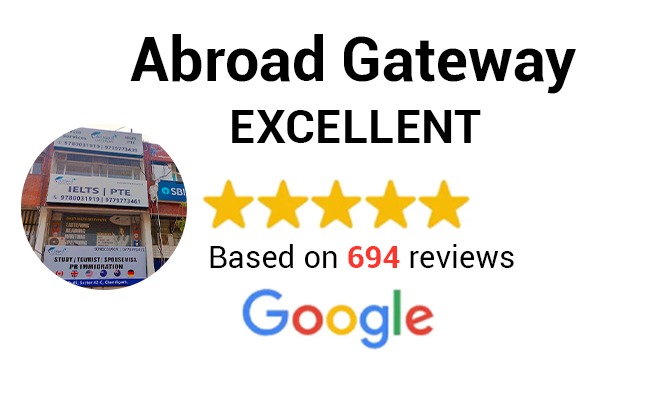Inviting parents and grandparents has become a common desire among many families living in Canada. The Super Visa program serves as a widely utilised and structured process that assists Canadian citizens and permanent residents in reuniting with their families for long periods, thereby promoting stronger family bonds and ensuring compliance with immigration regulations.
What is the Super Visa?
The Super Visa is a multiple-entry temporary resident visa for parents and grandparents of Canadian citizens or permanent residents. It allows stays of up to 5 years per visit, renewable, and has a total validity of up to 10 years, depending on passport validity. It is ideal for families looking for extended visits without permanent immigration.
To be eligible as a host, sponsors must meet the defined minimum income criteria, which have been officially revised for the year 2025.
This blog provides a detailed overview of the latest updates, eligibility requirements, and key information that prospective applicants should be aware of before applying for a Super Visa in 2025.
What’s New in 2025?
As outlined in a recent CIC News report and confirmed by the official update from Immigration, Refugees and Citizenship Canada (IRCC), the Minimum NecessaryIncome (MNI) threshold—required for sponsors seeking to host their parents or grandparents—has increased in 2025 to reflect the ongoing rise in the cost of living, ensuring that sponsors have sufficient financial funds to support extended family members during their stay in Canada.
Updated Income Requirement for Canada’s Super Visa in 2025 (LICO + 30%)
According to the most recent IRCC guidance, the income requirement for sponsors under the Super Visa program now stands at LICO-based Minimum Necessary Income (MNI) plus an additional 30%, calculated across the three consecutive tax years preceding the application date.
Effective July 29, 2025, individuals sponsoring under the Super Visa program must meet the following minimum income criteria, based on their family size:
| Size of family | (2025) Minimum income requirements | (2024) Minimum income requirements |
| 1 person (the sponsor) | $30,526 | $29,380 |
| 2 persons | $38,002 | $36,576 |
| 3 persons | $46,720 | $44,966 |
| 4 persons | $56,724 | $54,594 |
| 5 persons | $64,336 | $61,920 |
| 6 persons | $72,560 | $69,834 |
| 7 persons | $80,784 | $77,750 |
| More than 7 persons, for each additional person | $8,224 | $7,916 |
“Family size” includes the sponsor, their spouse (if any), dependent children, and the parent(s)/grandparent(s) being invited.
Calculating Family Size for the Super Visa
To determine if the host meets the minimum income threshold, the total family size must account for:
- The Super Visa applicant(s), such as the parent(s) or grandparent(s).
- The host in Canada (the child or grandchild).
- The host’s spouse or common-law partner, if applicable.
- Any dependent children of the host or their spouse/common-law partner, regardless of custody or where they live.
- Other individuals who were previously approved for a Super Visa by the same host or their spouse/common-law partner, as long as the visa remains valid.
- Any person the host or their spouse/common-law partner has sponsored, where the sponsorship commitment is still active.
Canada Super Visa 2025:
Who is eligible to host a Super Visa applicant?
To invite your parents or grandparents to Canada on a Super Visa, you must meet the following conditions:
- Canadian citizenship or permanent residency: You must be either a Canadian citizen or a permanent resident to be eligible to invite your parents or grandparents under the Super Visa program.
- Age and residency requirements for hosts: The host must be at least 18 years old and must reside in Canada. This ensures they are legally capable and physically present to support the applicant.
- Letter of invitation: A written invitation must be provided, clearly stating your relationship with the visitor, the purpose of their visit, and a guarantee of financial and housing support.
- Proof of income requirement: You must show that your annual income meets or exceeds the Minimum Necessary Income (MNI) level set by IRCC, which is updated yearly.
Eligibility Criteria for Super Visa Applicants
- Relationship requirement: Must be the parent or grandparent of the Canadian host.
- Application from outside Canada: The Super Visa application must be submitted while the parent or grandparent is physically outside Canada.
- Admissibility: Must not have a criminal record or any health condition that poses a risk.
- Medical examination: Required to complete a medical exam by an IRCC-approved panel physician.
- Health insurance: Must provide proof of valid medical insurance from a Canadian company.
- Ties to home country: Must show strong connections to their home country to prove they will return after their visit.
- No dependents allowed: Cannot include dependents, such as children or grandchildren, in the application.
Acceptable Proof of Income documents
The host must show that your household income meets or exceeds the Low Income Cut‑Off (LICO) based on family size.
Acceptable documents include:
- Notice of Assessment (NOA): Most recent CRA Notice of Assessment showing total income (including the page with Line 15000).
- T4 or T1 tax documents: Official tax slips (T4 or T1) for the most recent tax year.
- Employer letter: On company letterhead, stating your job title, description, date of hire and salary.
- Recent pay stubs: Ideally covering at least 3–6 months of wages
- Accountant’s letter: For self-employed individuals, confirming annual income.
- Other income documents: Such as pension statements, investment income, or rental income proof.
- Bank statements: Showing consistent deposits and financial stability; not mandatory, but it strengthens the application.
Why the increase in 2025?
The income requirement for the Canada Super Visa increased in 2025 to account for inflation and rising living costs across the country. As the cost of healthcare, housing, and daily expenses goes up, Immigration, Refugees and Citizenship Canada (IRCC) adjusts the Minimum Necessary Income (MNI) to ensure that hosts can adequately support their visiting parents or grandparents without financial strain on public services.
This change ensures:
- Visitors won’t become a burden on Canada’s healthcare or social systems.
- Hosts are financially capable of handling unexpected emergencies or medical needs.
Tips to Maximise Your Chances of Super Visa Approval
Consider these helpful tips to strengthen your application:
- Submit complete documentation: One of the most frequent causes of delays or denials is missing or incomplete paperwork, so ensure that all documents are correctly submitted.
- Show strong home country ties: Provide clear proof—such as job letters, property ownership, or close family connections—to demonstrate that you intend to return after your visit.
- Meet health insurance requirements: Ensure your medical insurance is issued by a Canadian or OSFI-approved provider and complies with all Super Visa requirements.
- Verify income eligibility: Make sure the sponsor’s income aligns with or exceeds the 2025 minimum requirement based on their family size.
- Seek expert guidance if needed: For complicated cases, it’s wise to consult a licensed immigration consultant or lawyer registered with the College of Immigration and Citizenship Consultants.
Need assistance with your Super Visa application?
Bringing your parents or grandparents to Canada shouldn’t be stressful. At Abroad Gateway, we’re here to make the Super Visa process smooth and hassle-free. From checking if you meet the new 2025 income requirements to preparing all your paperwork and helping with medical insurance, we’ve got you covered.
Get in touch with us today for a free consultation and take the first step toward reuniting with your loved ones in Canada.






